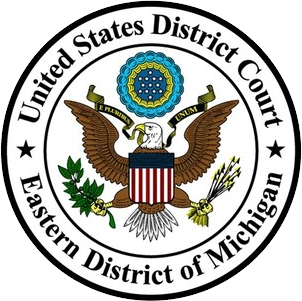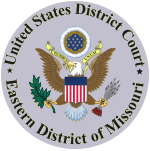Tinker v. Des Moines Independent Community School District, 393 U.S. 503 (1969), was a landmark decision by the United States Supreme Court that defined First Amendment rights of students in U.S. public schools. The Tinker test, also known as the "substantial disruption" test, is still used by courts today to determine whether a school's interest to prevent disruption infringes upon students' First Amendment rights.
Symbolic speech is a legal term in United States law used to describe actions that purposefully and discernibly convey a particular message or statement to those viewing it. Symbolic speech is recognized as being protected under the First Amendment as a form of speech, but this is not expressly written as such in the document. One possible explanation as to why the Framers did not address this issue in the Bill of Rights is because the primary forms for both political debate and protest in their time were verbal expression and published word, and they may have been unaware of the possibility of future people using non-verbal expression. Symbolic speech is distinguished from pure speech, which is the communication of ideas through spoken or written words or through conduct limited in form to that necessary to convey the idea.

Dean v. Utica Community Schools, 345 F. Supp. 2d 799, is a landmark legal case in United States constitutional law, namely on how the First Amendment applies to censorship in a public school environment. The case expanded on the ruling definitions of the Supreme Court case Hazelwood School District v. Kuhlmeier, in which a high school journalism-oriented trial on censorship limited the First Amendment right to freedom of expression in curricular student newspapers. The case consisted of Utica High School Principal Richard Machesky ordering the deletion of an article in the Arrow, the high school's newspaper, a decision later deemed "unreasonable" and "unconstitutional" by District Judge Arthur Tarnow.
Bethel School District v. Fraser, 478 U.S. 675 (1986), was a landmark decision of the Supreme Court of the United States in which the Court upheld the suspension of a high school student who delivered a sexually suggestive speech at a school assembly. The case involved free speech in public schools.
Stephen Nathaniel Limbaugh Sr. is a former United States District Judge who held concurrent appointments to the United States District Court for the Eastern District of Missouri and the United States District Court for the Western District of Missouri from 1983 until his retirement in 2008. He was appointed by president Ronald Reagan in the early 1980s after a distinguished career as a trial lawyer in Missouri. Like his father Rush Limbaugh Sr. before him, Limbaugh served as president of the Missouri Bar from 1982 to his appointment to the bench. His son, Stephen N. Limbaugh Jr., is a federal judge for the Eastern District of Missouri.

The United States District Court for the Eastern District of Missouri is a trial level federal district court based in St. Louis, Missouri, with jurisdiction over fifty counties in the eastern half of Missouri. The court is one of ninety-four district-level courts which make up the first tier of the U.S. federal judicial system. Judges of this court preside over civil and criminal trials on federal matters that originate within the borders of its jurisdiction. It is organized into three divisions, with court held in St. Louis, Hannibal, and Cape Girardeau.
Goss v. Lopez, 419 U.S. 565 (1975), was a US Supreme Court case. It held that a public school must conduct a hearing before subjecting a student to suspension. Also, a suspension without a hearing violates the Due Process Clause of the Fourteenth Amendment of the US Constitution.

Desilets v. Clearview Regional Board of Education, 137 N.J. 585 (1994), was a New Jersey Supreme Court decision that held that public school curricular student newspapers that have not been established as forums for student expression are subject to a lower level of First Amendment protection than independent student expression or newspapers established as forums for student expression.

In Guiles v. Marineau, 461 F.3d 320, cert. denied by 127 S.Ct. 3054 (2007), the U.S. Court of Appeals for the Second Circuit held that the First and Fourteenth Amendments to the Constitution of the United States protect the right of a student in the public schools to wear a shirt insulting the President of the United States and depicting images relating to drugs and alcohol.
Fitzgerald v. Barnstable School Committee, 555 U.S. 246 (2009), is a case in which the United States Supreme Court held that parents could sue a school committee under grounds of the Equal Protection Clause of the 14th Amendment.
The issue of school speech or curricular speech as it relates to the First Amendment to the United States Constitution has been the center of controversy and litigation since the mid-20th century. The First Amendment's guarantee of freedom of speech applies to students in the public schools. In the landmark decision Tinker v. Des Moines Independent Community School District, the U.S. Supreme Court formally recognized that students do not "shed their constitutional rights to freedom of speech or expression at the schoolhouse gate".
Gillman v. Holmes County School District, 567 F. Supp. 2d 1359, was a decision in the Northern District of Florida which upheld a student's First Amendment right to express pro-gay sentiments at Ponce de Leon High School.

J.S. v. Bethlehem Area School District, 757 A.2d 412, was a case of the Supreme Court of Pennsylvania, which found the Bethlehem Area School District could punish a student for derogatory and allegedly threatening comments made on a website about a teacher, even though the site was created off-campus.
Brentwood Academy v. Tennessee Secondary School Athletic Association, 531 U.S. 288 (2001), is a United States Supreme Court case concerning whether the actions of an interscholastic sport-association that regulated sports among Tennessee schools could be regarded as a state actor for First Amendment and Due Process purposes. The Court held that the sport-association can be sued as a state actor because its actions and history have been "entangled" with state action. While the Supreme Court would reconsider this same case in the future, this specific decision became important in articulating a new principle of what entities are bound by the First Amendment.
Hazelwood School District et al. v. Kuhlmeier et al., 484 U.S. 260 (1988), was a landmark decision by the Supreme Court of the United States that held that public school curricular student newspapers that have not been established as forums for student expression are subject to a lower level of First Amendment protection than independent student expression or newspapers established as forums for student expression.
Trinity Lutheran Church of Columbia, Inc. v. Comer, 582 U.S. ___ (2017), was a case in which the Supreme Court of the United States held that a Missouri program that denied a grant to a religious school for playground resurfacing, while providing grants to similarly situated non-religious groups, violated the freedom of religion guaranteed by the Free Exercise Clause of the First Amendment to the United States Constitution.

Layshock v. Hermitage School District, 593 F.3d 249 (2010), was a freedom of speech case of the United States Court of Appeals for the Third Circuit in which the arguments surrounded the online speech of a public school student. The appeals court affirmed the decision of the district court that the student's suspension for parodying his principal online was unconstitutional.

Kowalski v. Berkeley County Schools, 652 F.3d 565 (2011), was a freedom of speech case of the United States Court of Appeals for the Fourth Circuit over the online speech of a public school student. The appeals court affirmed the decision of the district court that the student's suspension for online harassment of a fellow student was constitutional.







